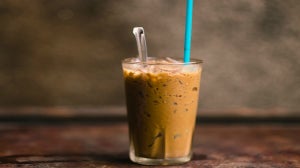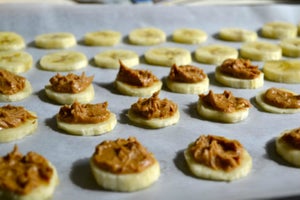
Introduction
ENER:GEL + Nitrate are the hottest addition to the range of energy gels at Myprotein and the science behind this product are clear to say the least. Nitrate has most recently been associated with greater energy efficiency during exercise and increased time to exhaustion and each gel is designed to provide you with the optimal amount of nitrate in order to improve athletic performance across a range of sports. When supplementing in the days leading up to competition and in the hours prior to the event, this product could be the difference between beating a personal best, winning a race or marginally failing. The beauty of the gels is that they can be consumed quickly and conveniently in the preparation leading up to competition or as part of your training regime to help maximise physiological adaptations.
Why Take Nitrate?
Athletes are continuously trying to come up with new interventions to maximise competitive performance and achieving this within a safe and legal boundary is often a challenge. Nitric oxide (NO) has recently become more popular due the fact it is an important physiological signalling molecule which modulate skeletal muscle. The main function of NO is that it improves vasodilation (widening of the blood vessels) which increases blood flow, in turn, this enhances the ability to deliver nutrients and oxygen to the working muscles whilst improving muscular efficiency of ATP production in the mitochondria (reducing the oxygen cost of exercise). With this is mind, it is evident that supplementing nitrate in the right amounts can have a huge impact on sports performance, and thus is the reason why many athletes are now adopting this approach.
Where do we get Nitrate from?
Although nitrate can be taken as a salt it is also found commonly in many vegetables such as beetroot, spinach, kale and rocket (see Table 1). However, when ingested in supplement form such as gel, shot or drink it can be found in much higher concentrations. The nitrate in the ENER:GEL + Nitrate is derived from beetroot juice which makes them safe and an extremely effective ergogenic aid.
Table 1. Nitrate content (per 100g) for a range of leafy greens, fruit and vegetables.

Who Will Benefit From Nitrate?
Nitrate supplementation has been shown to assist a range of different sports and athletes. Recently, it has been evaluated that nitrate supplementation can increase time to exhaustion, improve energy efficiency, and enhanced force production and therefore enhancing various aspects of performance. The sports which nitrate supplementation has been shown to be beneficial include;
• Endurance-based events (cyclists, long-distance runners, triathletes, rowers). • Team sports (rugby, football, hockey players). • Resistance-based events (powerlifters, weight-lifters).
The Science Behind Nitrate
Throughout the past century research investigating the importance of dietary nitrate on physiological performance has excelled massively and in particular, the effects of dietary NO on continuous, maximal exercise has been well documented. There is now a plethora of evidence to suggest that when taken in the right dosages, nitrate can have a huge influence on exercise efficiency, power output, and duration of exercise, in turn having a positive impact on overall performance (Larsen et al., 2007). A recent study carried out by Bailey et al. (2009) highlighted the use of nitrate to improve exercise tolerance, and the results confirmed that a beetroot rich supplement enhanced high-intensity exercise by 16%. Furthermore, this was also repeated in both two-legged knee extensor exercise (Bailey et al., 2010) and treadmill running (Lansley et al., 2011) with these showing a 25% and 16% increase in performance, respectively.
There is a vast amount of literature to demonstrate that supplementation of nitrate improves physiological performance in both elite and sub-elite athletes, specifically in respect to cycling and running events. Recent research from Lansley and co-workers (2011) demonstrated that acute beetroot ingestion improved 4km and 16.1km cycling time-trial performance by approximately 2.7% compared to a placebo which was due to a higher power output. This was later supported by Cermak and colleagues (2012), where they found that beetroot juice supplementation (8mmol a day for 6 days – equivalent to approximately 2 ENER:GEL + Nitrate) improved power output and 10km time-trial performance by 1.2% in trained cyclists. At a glimpse this may only appear to be a small amount but it would be regarded significant where the difference of winning or losing could be tenths of a second.
How Much Nitrate and when?
There has recently been some groundbreaking evidence by Prof. Andrew Jones and colleagues at the University of Exeter, showing that 5-7 mmol of nitrate (~0.1 mmol•kg body mass) is the optimal amount to reduce resting blood pressure, lower the oxygen cost of exercise (increases muscle efficiency) and consequently enhance exercise tolerance and performance (This is approximately 2 of the ENER:GEL + Nitrate). The effects of this have been shown to be present in as little as 3 hours after ingestion and can be maintained for up to 15 days if this is continued on a daily basis. Blood nitrate levels will tend to peak within 2-3 hours and will remain elevated for a further 6-9 hours before falling back to baseline. With this in mind, it is recommended to consume the nitrate supplement approximately 3 hours prior to exercise or competition to experience the best effects. In addition to this, a pre-loading phase of 6mmol a day for roughly 4-6 days prior to competition is thought to be the optimal loading strategy for improving energy efficiency.
Key Point: Conversion for nitrate: 1 mmol = 62 mg. Each ENER:GEL + Nitrate will provide 220mg of nitrate which equates to approximately 3.5mmol of nitrate.
References
Bailey, S. J., Winyard, P., Vanhatalo, A., Blackwell, J. R., DiMenna, F. J., Wilkerson, J., Tarr, J., Benjamin, N., and Jones, A. M. (2009). Dietary nitrate supplementation reduces the O2 cost of low-intensity exercise and enhances tolerance to high-intensity exercise in humans. J. Appl. Physiol. 107:1144-1155. Bailey, S.J., Fulford, J., Vanhatalo, A., Winyard, P., Blackwell, J.R., DiMenna, F.J., Wilkerson, D.P., Benjamin, N., and Jones A.M. (2010). Dietary nitrate supplementation enhances muscle contractile efficiency during knee extensor exercise in humans. J. Appl. Physiol. 109:135-148. Cermak, N.M., Gibala, M.J., and van Loon L.J. (2012). Nitrate supplementation’s improvement of 10-km time-trial performance in trained cyclists. Int. J. Sport Nutr. Exerc. Metab. 22:64-71. Lansley, K.E., Winyard, P.G., Bailey, S.J., Vanhatalo, A., Wilkerson, D.P., Blackwell, J.R., Gilchrist, M., Benjamin, N., and Jones, A.M. (2011b). Acute dietary nitrate supplementation improves cycling time trial performance. Med. Sci. Sports Exerc. 43:1125-1131. Larsen, F.J., Weitzberg, E., Lundberg, J.O., and Ekblom B. (2007). Effects of dietary nitrate on oxygen cost during exercise. Acta Physiol. 191:59-66.
Our articles should be used for informational and educational purposes only and are not intended to be taken as medical advice. If you're concerned, consult a health professional before taking dietary supplements or introducing any major changes to your diet.








